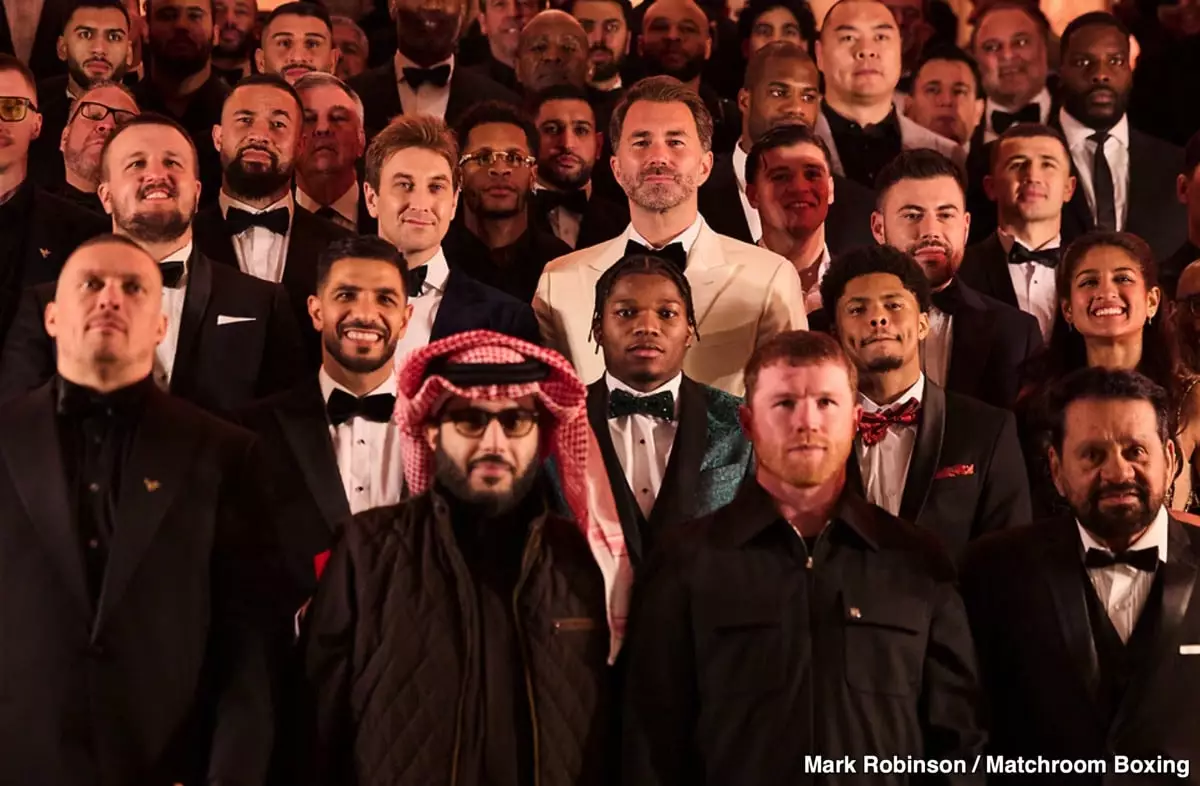In a striking commentary that has fueled discussions across social media, Gervonta Davis has weighed in on a recent image of prominent boxers posing with Turki Alalshikh. Davis suggests that the aesthetic of the photograph radiates an unsettling vibe, describing it as “some devil s**t,” insinuating that these fighters might have metaphorically “sold their souls.” Such statements prompt a deep dive into the prevailing atmosphere in professional boxing, suggesting a veneer of darkness that is increasingly hard to ignore.
The photo in question features various athletes, including Teofimo Lopez, who, in the eyes of many fans, resembles a “Honduran vampire.” Elucidated through the lens of modern social media, many observers have remarked on the cult-like semblance exuded by the image, where the combination of dim lighting and formal attire enhances a dreary ambiance. The bow ties worn by the fighters seem to add to this eerie decorum, painting a picture that teeters on the brink of unsettling.
Davis did not mince words when voicing his apprehensions about fighting in Riyadh, Saudi Arabia. He criticized the questionable circumstances surrounding several high-profile fights that have been held in the region. While he did not specify particular bouts, fans have pointed to contentious outcomes, notably the bouts featuring Carlos Adames versus Hamzah Sheeraz and Artur Beterbiev facing Dmitry Bivol. These fights have been steeped in controversy, leading fans and fighters alike to question the integrity of officiating in Saudi Arabia.
Davis raised valid concerns regarding these controversial decisions, reflecting broader anxieties UK American boxers are starting to express about fairness in international matchups. “Everything is different,” he remarked, highlighting that these issues are not isolated incidents. His statement resonates with a growing sentiment among fighters who fear manipulation in the boxing arena, particularly in locations that may not adhere to traditional standards of fairness.
Davis’s statements transcend mere personal viewpoints; they illuminate a pervasive aura of distrust within the boxing community. His claim that “people are selling themselves” is indicative of a broader concern regarding authenticity in the sport. As athletes engage with influential figures like Alalshikh, there is a palpable fear that financial motives may overshadow the sport’s integrity. The alleged exploitation of the athletes’ names and images as part of a larger agenda is a cause for concern, especially when fighters who once held a bastion of respect may now be entangled in a narrative reminiscent of cultish behavior.
This unsettling possibility captures the sport’s current moment, echoing the fears of many that the purity of competition is being compromised for financial gain. Fans and athletes alike are left to grapple with the implications of what such allegiances mean for the future of boxing and the ethical line that professionals must navigate. Davis’s commentary has resonated widely; his candidness reflects an urgent need for accountability and transparency in boxing, calling for a collective reassessment of what it means to compete with honor in today’s shifting landscape.
The current state of boxing, as highlighted by Gervonta Davis, presents a worrying narrative. As fighters grapple with their positions and the influences around them, it is crucial for the community to advocate for integrity and ethical practices to ensure that the sport remains true to its core principles of competition and respect.

